Comparing your retirement living options
Many retirees considering their downsizing options choose between retirement village living or a land lease community (often referred to as a lifestyle or over 50s resort) – but what are the major differences between the two styles of retirement accommodation?
Types of ownership
Residents of a retirement village secure a lease over a property (your apartment) which is registered with the Queensland Titles Office. In a land lease community, the agreement only covers the lease of the land - the house you purchase is required to be technically relocatable.
Government protection
Retirement villages in Queensland must be registered under the State’s Retirement Villages Act 1999 and some of the protection is your right to live in your home for as long as you desire and the maintenance of your asset. The Queensland Law Handbook states: “The overriding aim of the Retirement Villages Act is to require greater transparency and accountability of each retirement village scheme both in respect to current and prospective residents. It creates extensive obligations for disclosure of information by operators.’’

Land lease communities are legislated under the same laws as manufactured homes and caravan parks. If an operator ceases to exist, or the land is redeveloped, your right to remain in your home is not protected. This rarely occurs but is worth considering.
Maintenance
As an operator of a Registered Retirement Village, Aura Holdings has full legal responsibility for all capital assets within a resident’s apartment, community facility assets, furnishings, plant, equipment and machinery. Any capital asset at the end of its useful life must be replaced with a new item. Residents of an Aura village do not financially contribute to these capital items. These improvements ensure our villages are maintained to a high standard, which is vital to ensure maximum capital growth when the time comes to sell an apartment.
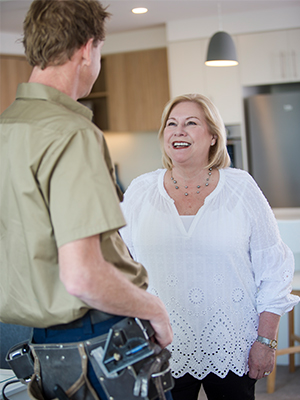
There is no legislative requirement for land lease operators to replace capital assets relating to community facilities, furnishings, plant, equipment and machinery. These major capital replacement costs may need to be funded from special levies on residents, depending on contractual arrangements between the operator and the resident.
If a maintenance issue arises inside your Aura village apartment or an item that was in place when you moved in becomes faulty, it will be repaired or replaced at a similar value at no cost to you. In a land lease community, residents are fully responsible for their own home maintenance, repairs, replacement of major items, gardens and associated costs; the operators are only responsible for maintaining communal areas and facilities.
Village location
Location is also key. Retirement villages, particularly vertical-style villages like Aura Holdings favours, can be built on prime locations close to the beach, inside golf courses or within vibrant urban neighbourhoods with all facilities nearby. Land lease communities require extensive land often to accommodate hundreds of villas so must be constructed outside towns or cities on more isolated sites.
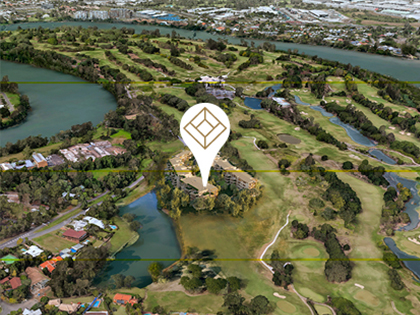
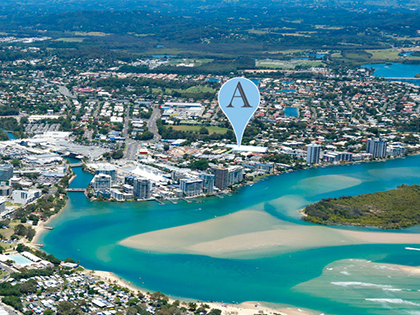
Aura Holdings' villages - Left: Somerset Indooroopilly - Right: The Avenue Maroochydore
Age-appropriate design
Modern retirement villages are designed and constructed for easy mobility to allow residents to age in place so they may never need to move again. There are no stairs, and vertical villages have lifts for easy access to communal facilities. Many residents of land lease communities find the housing styles and the distances around the village difficult to manage as they age.
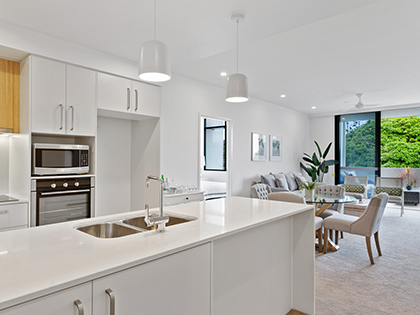
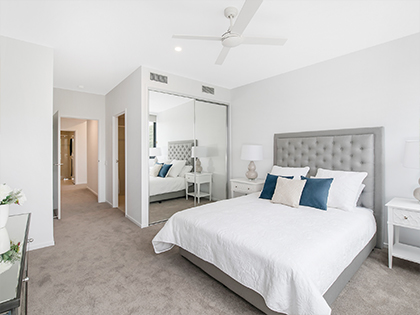
Display apartments at Aura Holdings retirement villages
Costs and fees
It’s important for retirees to know and understand their upfront, ongoing and outgoing costs. Residents of retirement villages have more certainty about the costs they face from the day of purchase. You will know your weekly costs and the percentages of your deferred management fee. There is more uncertainty for land lease residents as rent for the land can often increase above CPI at the operator’s discretion.
Under the Queensland Retirement Village Act, fees cannot increase above CPI (other than statutory charges such as council rates) unless voted on by village residents. Unlike land lease communities, retirement village operators cannot make a profit from fees.
The rights and obligations of residents in a Registered Retirement Village are clearly set out in the contract and cannot be changed without a resident’s consent.
Land lease fees can change at the operator’s discretion without resident consultation as there is no legislation with regards to fee increases. Some residents have fought rent rises in tribunals when site rents have increased substantially as land values soar.
To learn more about our fees and compare our fee structure with other operators, click here.
Renovation costs
When you leave an Aura village you will not pay refurbishment costs on your apartment.
In land lease communities, the operators are not required to reinstate your property, so the costs of repainting, new carpets, or appliance replacements must be met by the seller or buyer. If villas are sold in an unrenovated state, the village may start to look rundown which can impact the value of your property.
Selling your apartment
Aura Holdings will organise for the resale of your apartment and under legislation, there is a mandatory buyback guarantee - if not sold after 18 months Aura will buy it back from you. Aura does not charge sales commissions or marketing fees when selling your apartment. You will also not pay the weekly fee after 90 days of vacant possession.

When residents leave a land lease community often they must organise the sale of their home or use the community’s sales team and pay commission. There is also no obligation for the operator to buy back if it remains unsold and the resident must also continue paying weekly fees to the land lease operator during this time.
It is essential when researching your retirement living options to fully understand what each style of accommodation offers you and the legislation protecting your right. For your own peace of mind, we recommend you seek independent advice.
To learn more about our fees, DMF structure and our cost of living comparison documents, please click here. For further information, you can also visit our FAQ page or contact us directly on 07 3716 0804 or live@kingsfordterrace.com.au


